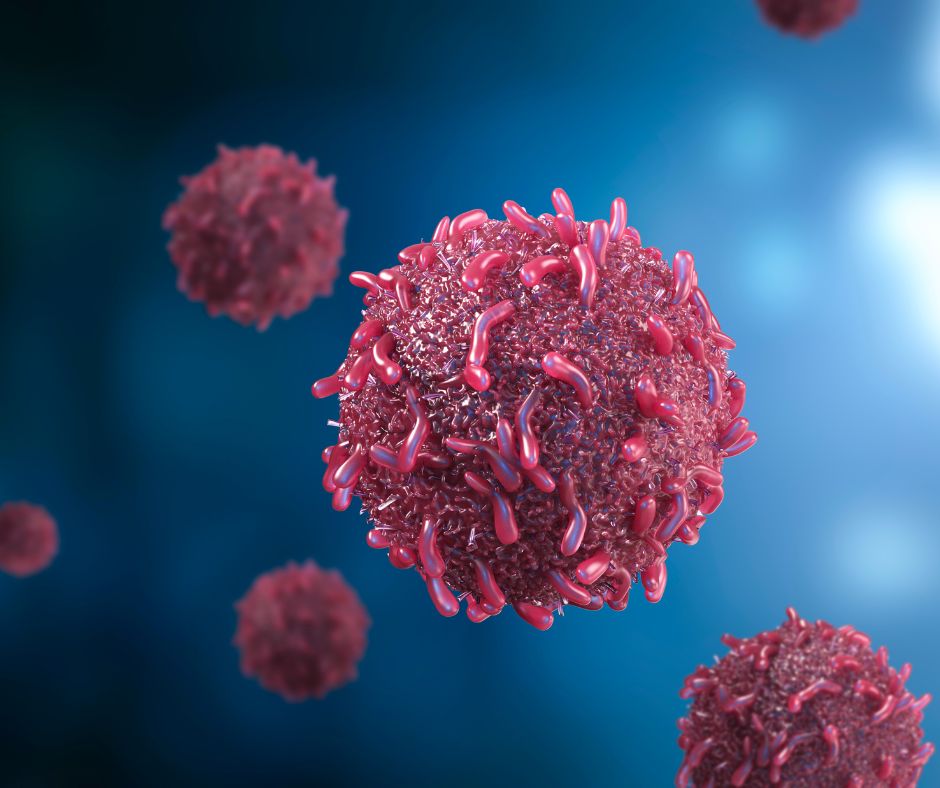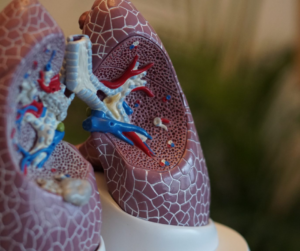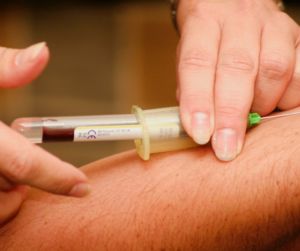Beth Sandy, MSN, CRNP
Proton pump inhibitors (PPIs) are very common to use in a wide variety of patients to treat many different symptoms of anything from a more serious condition like Barrett’s esophagus to a self-diagnosed heartburn. Since they are now available over the counter, they can be used at any time. While prescription is still required in the United States, antibiotics also are frequently used to treat any concerns for infection and may be prescribed by any doctor or advanced practice provider.
A recent article published in the Journal of Thoracic Oncology reviewed 5 studies that address this topic of patients on immunotherapy for lung cancer, particularly atezolizumab, a programed death-ligand 1 (PD-L1) checkpoint inhibitor, and who are also on either PPIs or antibiotics. Gut dysbiosis, when the gut bacteria ecosystem is disrupted, can impair adaptive immunotherapy in the form of T cells as well as other expressions of the immune system. Data was evaluated in 4458 participants who were receiving atezolizumab, and investigators found that 285 had taken antibiotics within 30 days of receiving atezolizumab, and 1225 were currently using a PPI at the time they began treatment with atezolizumab.
This study pooled the data from the 5 trials which indicated that the overall survival (OS) was comparable in both the patients who were receiving antibiotic therapy vs patients who were not taking antibiotics, hazard ratio (HR) was 0.73 and 0.74, respectively. Conversely, in the population of patients taking PPIs, reduced efficacy was found, with the HR being 1.00 for patients on PPIs vs 0.76 for patients not using PPIs. This was consistent in all of the randomized trials reviewed and held true for progression-free survival (PFS) as well as OS. Interestingly, in patients taking PPIs, there were significantly lower percentages of lymphocyctes, CD19+ and CD16+CD56+ immune cells.
The authors conclude that further research is needed, ideally in a prospective fashion, to determine if these findings are truly impacting survival with not just atezolizumab in lung cancer but with any immune checkpoint inhibitor (ICI) in any cancer types. The exact drug in the class of PPI was not recorded; however, the studies did indicate that 90% of the patients were taking the PPI for an indication that required extended use. Perhaps investigation into H2-receptor antagonists (H2RA) would have similar or different findings? This has not been well established, but maybe some H2RAs may have less impact on gut dysbiosis.
Per discussion in this article, research shows that PPIs are commonly overprescribed in up to 70% of patients often with the thought that there is no harm or side effects from using them. Also, the article notes that up to 30% of cancer patients take PPIs.
In oncology, we need to be vigilant about our medication reviews. While antibiotics did not seem to show a difference in survival with ICI therapy, we should be aware if patients are taking them and for what indication. For PPIs, they can be obtained over the counter, so it is important that we review all prescription and over-the-counter medications, and then dig deeper with our patients to determine the exact diagnosis for why they are taking it, who prescribed it, and possibly consider stopping the PPI if it is truly not needed.
Hopkins AM, et al. Efficacy of atezolizumab in patients with advanced non-small cell lung cancer receiving concomitant antibiotic or proton pump inhibitor treatment: pooled analysis of five randomized control trials. J Thorac Oncol. 2022, epub 2/17/2022. https://doi.org/10.1016/j.jtho.2022.02.003

Beth Sandy, MSN, CRNP
Thoracic Oncology Nurse Practitioner – Abramson Cancer Center – University of Pennsylvania







